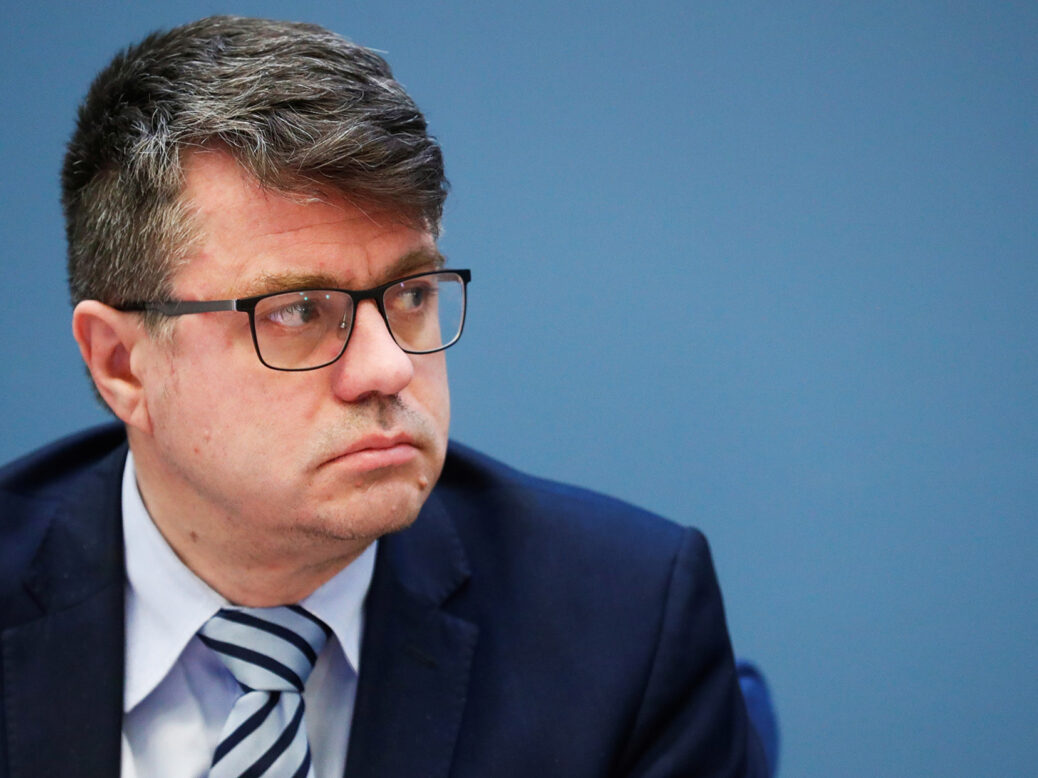
BERLIN – Estonia’s foreign minister has dismissed as a “provocation” Russia’s accusation that a woman who allegedly killed Darya Dugina last week fled to Estonia.
In an interview with the New Statesman, Urmas Reinsalu said that the claim that a Ukrainian woman named Natalia Vovk had crossed into Estonia after planting the car bomb which killed Dugina, daughter of the prominent Russian ultra-nationalist Alexander Dugin, in Moscow was only the latest in “a list of provocations we have seen from the Russian side recently”. He added: “Our police department does not disclose any entries to the country and we are not going to the line that the Russians would like to go to at this moment.”
Russia is already targeting the Baltic state with massive cyberattacks while regime figures such as the former president Dmitry Medvedev deny Estonia’s right to statehood, Reinsalu said. “This is a long line of provocations, so we are not in any way surprised about this new one.”
The cyberattack last week was the biggest against Estonia, which has a border with Russia and was controlled by the Soviet Union until 1991, for over a decade. Moscow has been angered by Estonia’s support for Ukraine – the country is the largest per capita donor of military aid to Kyiv – as well as by a decision to take down Soviet-era war memorials. The Estonian government has taken a consistently hawkish line within the EU, arguing for a ban on imports of Russian oil and gas and pushing for a ban on most visas issued to Russian citizens.
[See also: Attacks on Ukrainian power plant raise fears of second Chernobyl]
Contrary to accusations from the Russian regime that Estonia has refused requests to hand over Vovk, Reinsalu said that according to his information, “at least from yesterday [22 August], we have not received any requests” for extradition. He added that while his government would examine any requests issued by Moscow, “the context for these accusations is not peaceful. We have seen serial lies linked to the war in Ukraine.” These include, he said, suggestions that atrocities committed in the Ukrainian town of Bucha by the Russian army were staged by the Ukrainians.
Reinsalu also called for European countries to hold their nerve over what is expected to be a difficult winter, with energy shortages and spiralling inflation. Military aid to Ukraine should continue and sanctions should be intensified, not eased, he urged.
“We might feel temporary inconvenience,” he said, “but we see a systematic genocide of a nation unfolding in front of our eyes in the middle of Europe. Are we tired of believing in human dignity, human life, freedom?” Inflation and energy shortages would be “temporary limitations”, while the values inscribed in European treaties would be “betrayed” if the EU gave in to Russia, he added.
“Without determination and stronger support from the Western community, the beast will win,” Reinsalu said. “We should not be cowards and show [the Russian president Vladimir] Putin that our determination and willpower has no basic caveats, and that it’s going to be stronger – not weaker – than his.” Another package of EU sanctions should be implemented before the winter, he said.
“Of course, from the tactical economic viewpoint, to argue in favour of either current or new sanctions is irrational. Sanctions are a strong and painful burden to our customers, companies and society,” Reinsalu said. Yet they are necessary, he argued, to raise the cost of the war for the Putin regime so much that the Russian president’s hold on power is threatened. That point has not been yet been reached.
[See also: The war in Ukraine has reached a critical moment]






